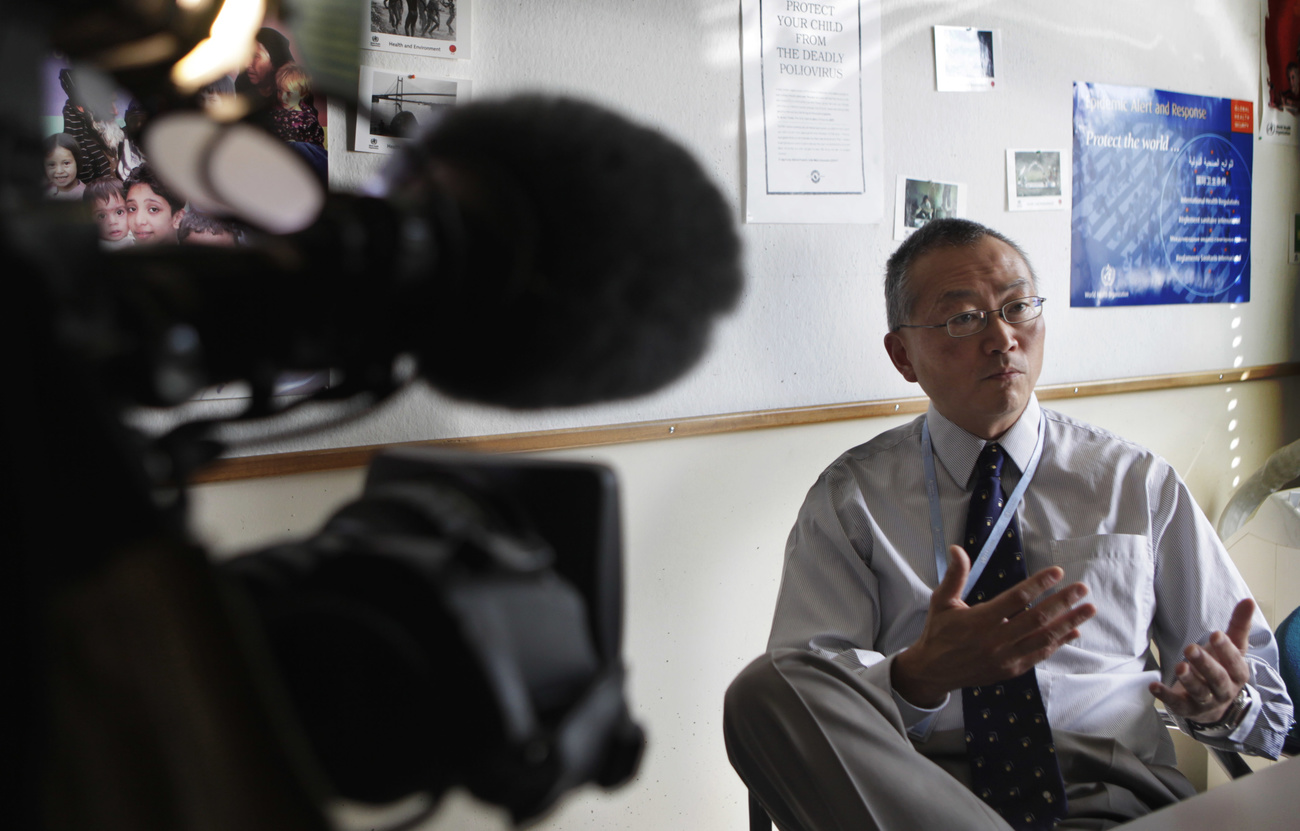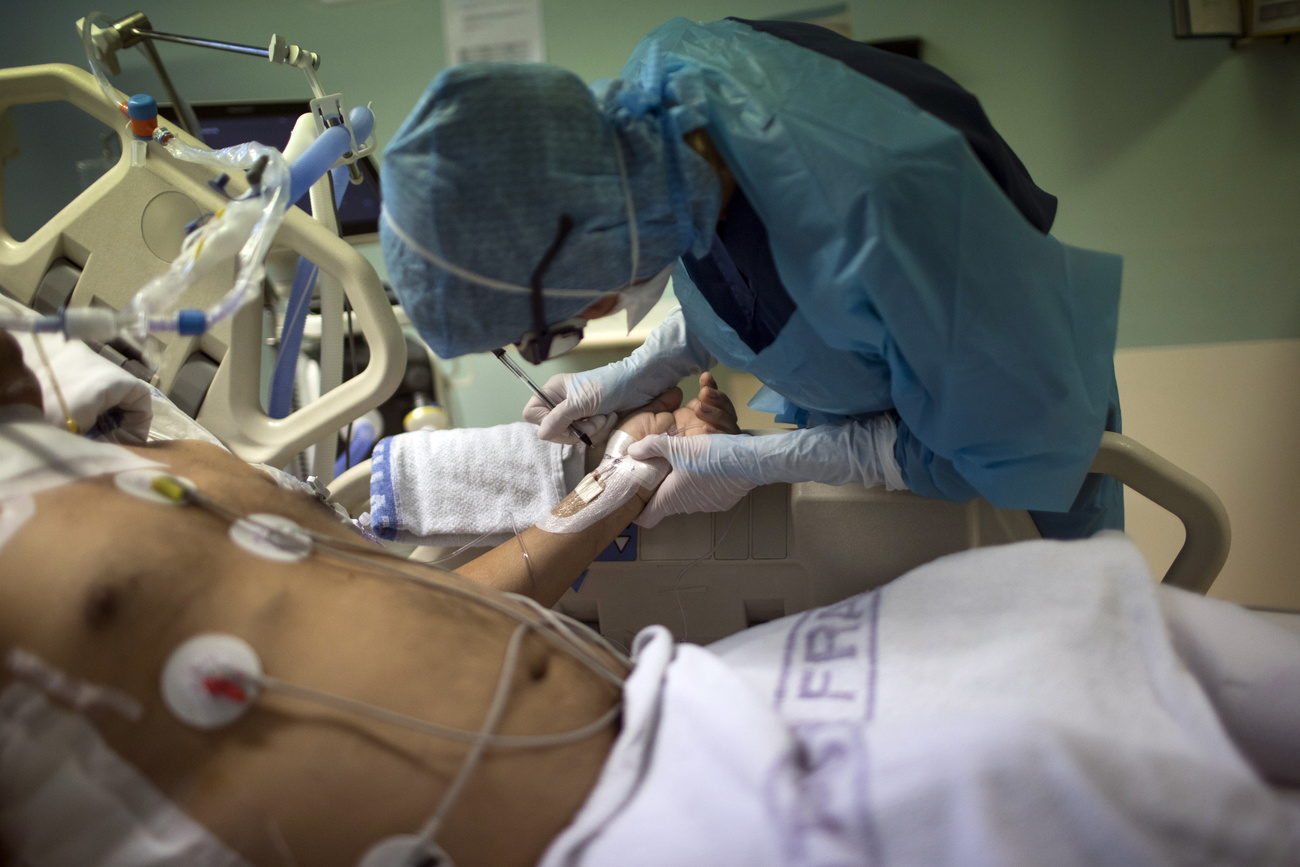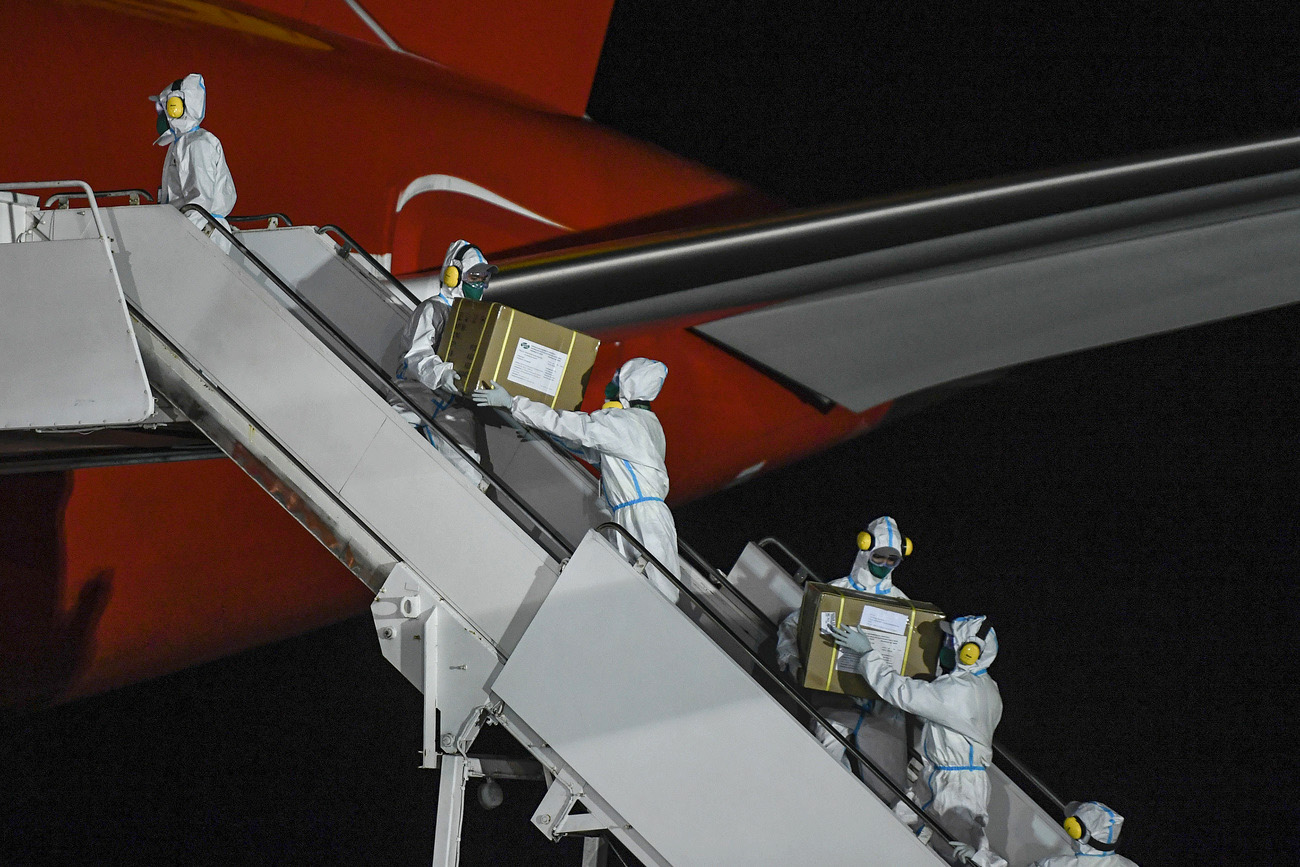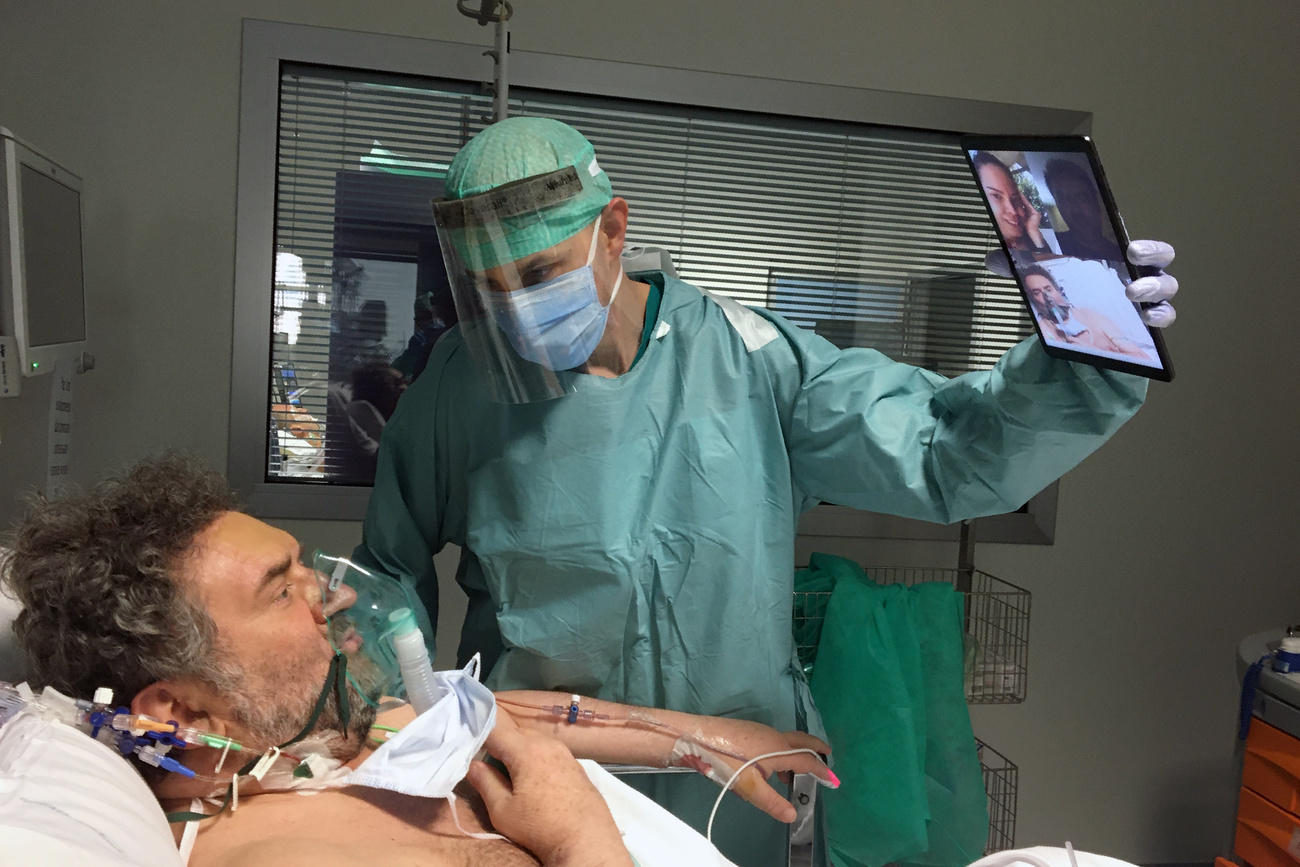WHO has no means to impose multilateral response to pandemics

As the World Health Assembly gathers in Geneva from May 24, Keiji Fukuda, a public health expert and former assistant director-general of the World Health Organization (WHO), speaks to SWI swissinfo.ch about why the WHO failed to impose a global response to the pandemic and how governments are in part to blame.
WHO has been criticized for its slow response to the pandemic. A leading health expert says, collective threats like Covid-19 need a cooperative approach. However, a large part of the problem lies with governments which failed to implement existing global regulations.
In an interview with SWI swissinfo.ch, Keiji Fukuda, explains why he feels the legally binding International Health RegulationsExternal link have not been effective.
These regulations require countries to report public health events, maintain capacities for surveillance and response and even includes provisions on travel and transport such as health documents required for crossing borders.
Keiji Fukuda has been the Director of the School of Public Health of the University of Hong Kong since 2017. He worked at the World Health Organization (2005 – 2016) as Assistant Director-General for Health, Security and Environment, Special Adviser to the Director-General on Pandemic Influenza, Special Adviser for Antimicrobial Resistance and Director of the Global Influenza Programme. Fukuda dealt with the IHR, including during outbreaks of avian influenza and other infections and the 2009 influenza pandemic when he was at the WHO.
SWI swissinfo.ch: Why do you think the IHR was not respected by governments?
Keiji Fukuda: The response by countries in the current pandemic has been heavily nationalistic and poorly coordinated. The IHR was relatively ignored during Covid-19 because of the current geopolitical environment. What this tells us is that an international agreement, law or treaty may have some effect, but will not adequately fulfill its purpose if political leadership at the time of the emergency is not supportive or cooperative.
SWI: From what we’ve learned during the Covid-19 pandemic, which part of the IHR did not function well and which needs to be amended?
K.F.: The IHR need to be revisited in their entirety to see if they remain fit for purpose, and if not, modified accordingly. But the more fundamental issue is whether countries believe a multilateral, cooperative approach is desirable and if it is feasible to implement in the current era. I hope so, because it is the most rational approach to addressing a collective threat like a pandemic. But I am not certain whether global geopolitics will support a truly multilateral response. Some may prefer a more fragmented approach to facilitate greater national autonomy and less global scrutiny.
SWI: Why do you think so?
K.F.: Many of the fundamental decisions in this pandemic, such as travel and border restrictions, were made on a country by country basis with little coordination. This is the type of measure the IHR were designed to address. Will countries request WHO or other member states in the future for discussion and guidance when a future pandemic or emergency occurs? I hope so but this is not clear. It now is eminently possible that countries will make such decisions entirely on their own with little coordination.
SWI: Do you think at least that it is necessary to have certain standards which determine the “circuit-breaker (national emergency lockdown)” for global health?
K.F.: Global standards for such an issue are not likely to be too helpful except to provide general guidance over what countries can consider as options. The specific domestic circumstances and situations of individual countries are complicated in trying to construct, and more importantly, implement a global standard. In an emergency, countries are much more likely to be worried about their own circumstances rather than following a global standard if they feel it is not useful for them.
SWI: To prepare for future pandemics, how should the IHR be reformed?
K.F.: The deeper issue is not the IHR but the degree to which countries value, and can agree to implement, a multilateral response. If this is desirable, then revising the IHR could be important. Moreover, revising other agreements such as the Pandemic Influenza Preparedness Framework or creating new ones might also be useful. For example, despite the implementation of the COVAX mechanismExternal link, the distribution of vaccines has been heavily skewed towards the richer countries because they have more money and better access to producers and so cornered much of the early vaccines. Moreover, some countries prohibited exportation of vaccines. Can we do better? I hope so, but it will require countries to reaffirm the value of working together.
SWI: Do you think it is necessary to introduce tighter travel restrictions to stop pandemics?
K.F.: Travel restrictions might slow the spread of infection in the early stages of a pandemic, but it is not optimal to use travel restrictions to stop the eventual overall spread of pandemic infections. A more useful way to think about travel restrictions is as a temporary and tactical step for a country to buy time to prepare its systems and to enact basic infection prevention and control measures like social distancing, masks, testing and vaccination.
SWI: Health documents for travel are included in a provision of the IHR. Should proof of vaccination be a prerequisite for traveling?
K.F.: It is strongly advisable and important for people to get vaccinated against Covid19. However, making it a hard prerequisite for travelling will create a rigid requirement that will make travelling more difficult but will not reduce spread of infection to zero. A more flexible and practical approach would be to incentivize travelers to get vaccinated – for example, by reducing quarantine requirements – but to stop short of making it an absolute requirement for travel.

In compliance with the JTI standards
More: SWI swissinfo.ch certified by the Journalism Trust Initiative
















You can find an overview of ongoing debates with our journalists here . Please join us!
If you want to start a conversation about a topic raised in this article or want to report factual errors, email us at english@swissinfo.ch.